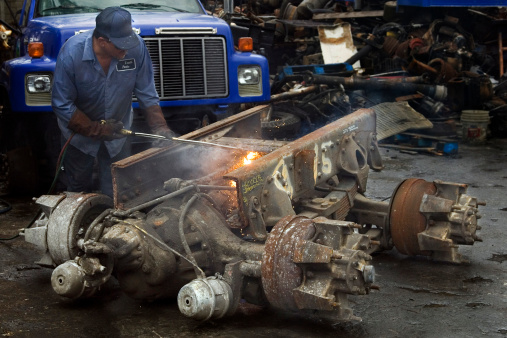Due to growing shipping costs and a depreciating shilling, spare parts cost has increased by 50% in Kenya over the past six months, with used parts suffering the most.
The price increase has compelled purchasers who ordinarily purchase new auto parts to choose used options that meet their budgets. The cost of a nose job for a 2008 Toyota Fielder has increased by 50% to Sh85,000 in the last six months, according to data gathered by the Business Daily from Nairobi auto parts shops, while the cost of headlights for 2005 Japanese models such as the Toyota Premio has increased from Sh20,000 to Sh30,000.
In the past six months, the average cost of a Toyota Corolla's headlights has jumped from Sh18,000 to Sh24,000. Headlights are among the most popular automotive components due to their vulnerability to theft and accidents. However, the booming Boda Boda sector has also been accompanied by an increase in minor car accidents involving drivers that are not insured.
In Nairobi, second-generation 2010 model boots are now selling for Sh18,000, up from Sh12,000 in January, while a 2005 Toyota Premio front bumper is now selling for Sh45,000, a 28 percent increase during the period under review.
Acco
Ding to Peter Otieno, president of the Kenya Car Importers Association, used car component costs are unlikely to decline in the coming months. This is owing to the ongoing devaluation of the shilling against the dollar. Expect pricing to remain unchanged over the next few months when the shilling weakens against the dollar, according to Mr. Otieno, since used car parts are also imported in dollars.
"As we wait to bring in the incoming regime, which must also come up with favorable taxes, the government should step in and permit us to continue using the old taxes we were using previously."
The most frequent automobile components bought locally are batteries, tires, seat coverings, and windows. However, they are not of major worth. The most expensive automobile components, including engines and transmissions, are imported from China, Dubai, Malaysia, and Dubai. Because of the rise in the cost of used car components, dealers have reduced the number of orders they place from source markets such as Dubai in a month by 30% to manage cash flow.
The shilling's depreciation and bottlenecks in global supply chains that have risen container and shipping charges are increasing the problem of a scarcity of secondhand vehicle components.
The shilling closed at Sh118.70 per unit vs. the dollar on Wednesday, down from Sh113.58 in February and Sh107.85 a year ago. As a result, imports are more expensive since used auto parts merchants demand more local currency to make orders for foreign-priced replacement components. According to retailers, strong dollar demand from various industries outweighed meager inflows.
To be free from the 16% VAT, assemblers must get parts from the local market worth at least 30% of the value of passenger cars.





